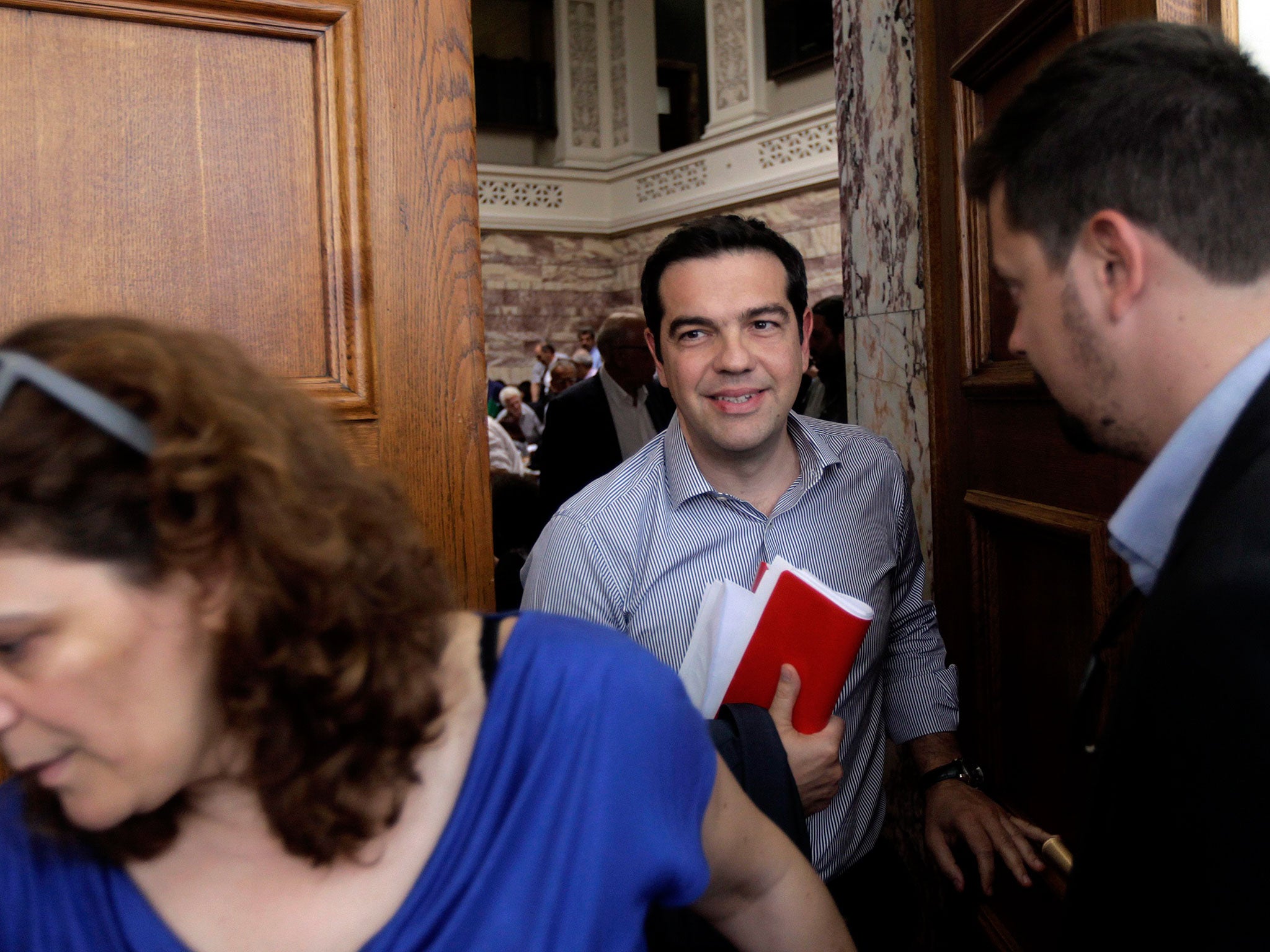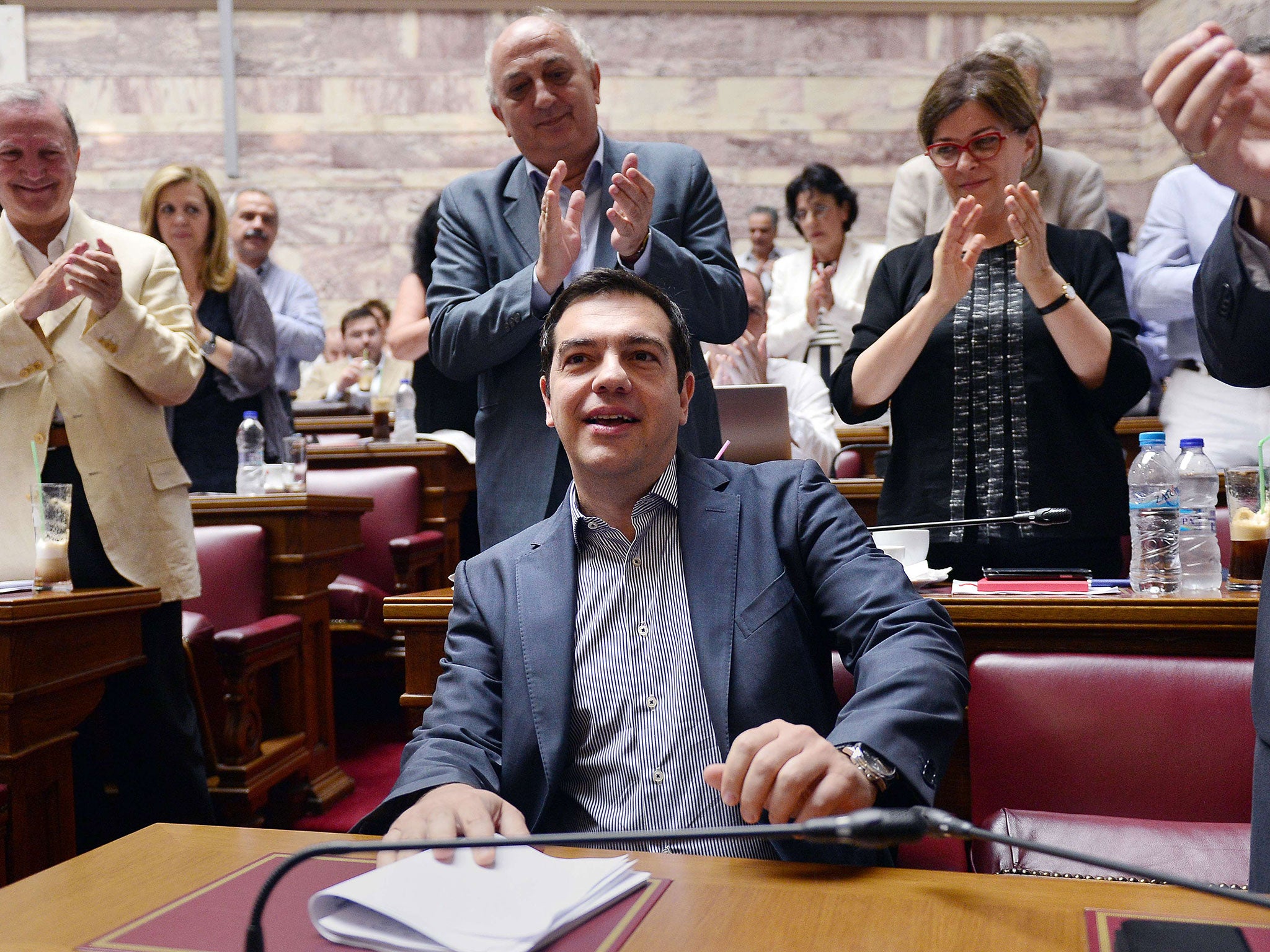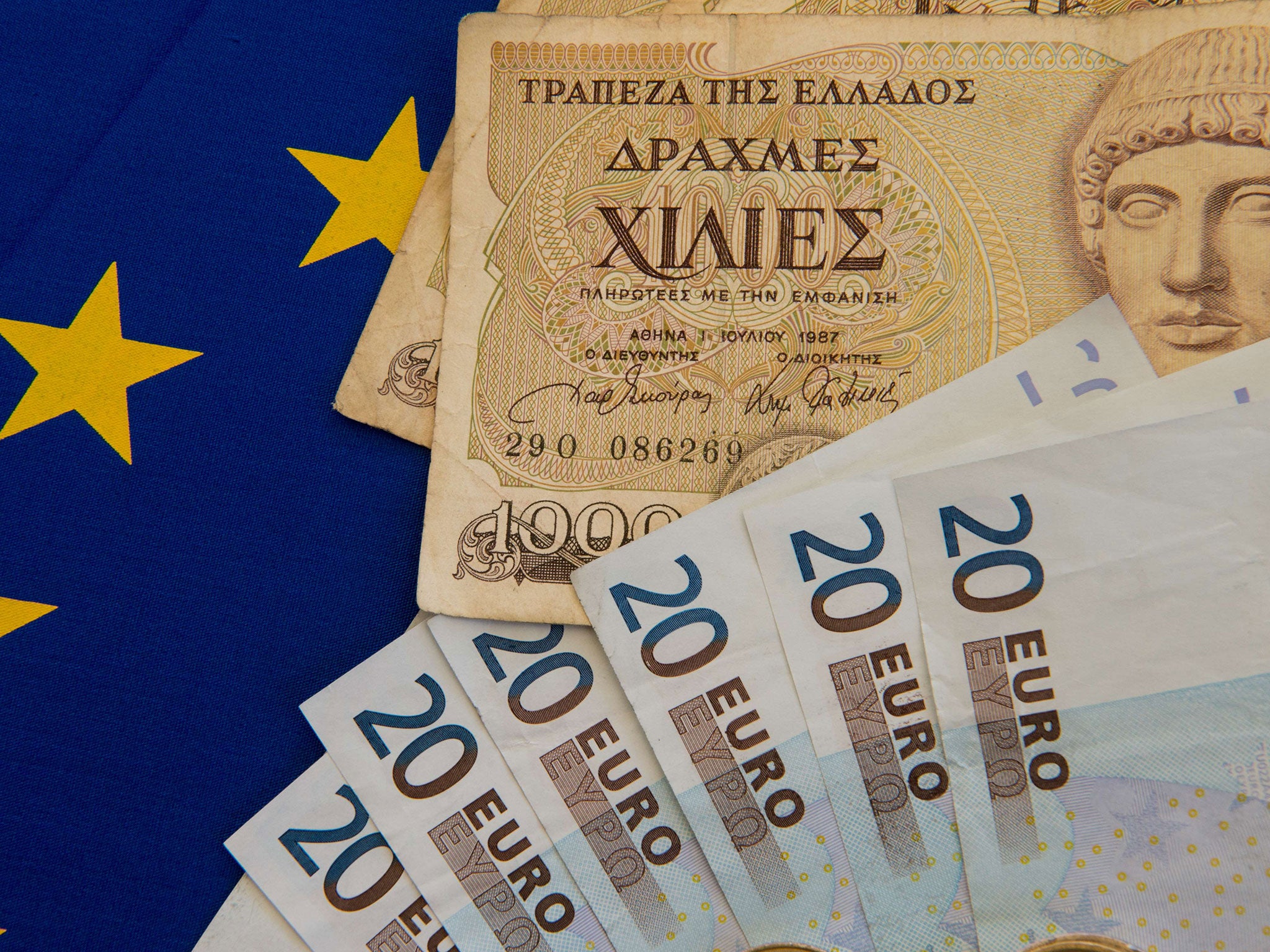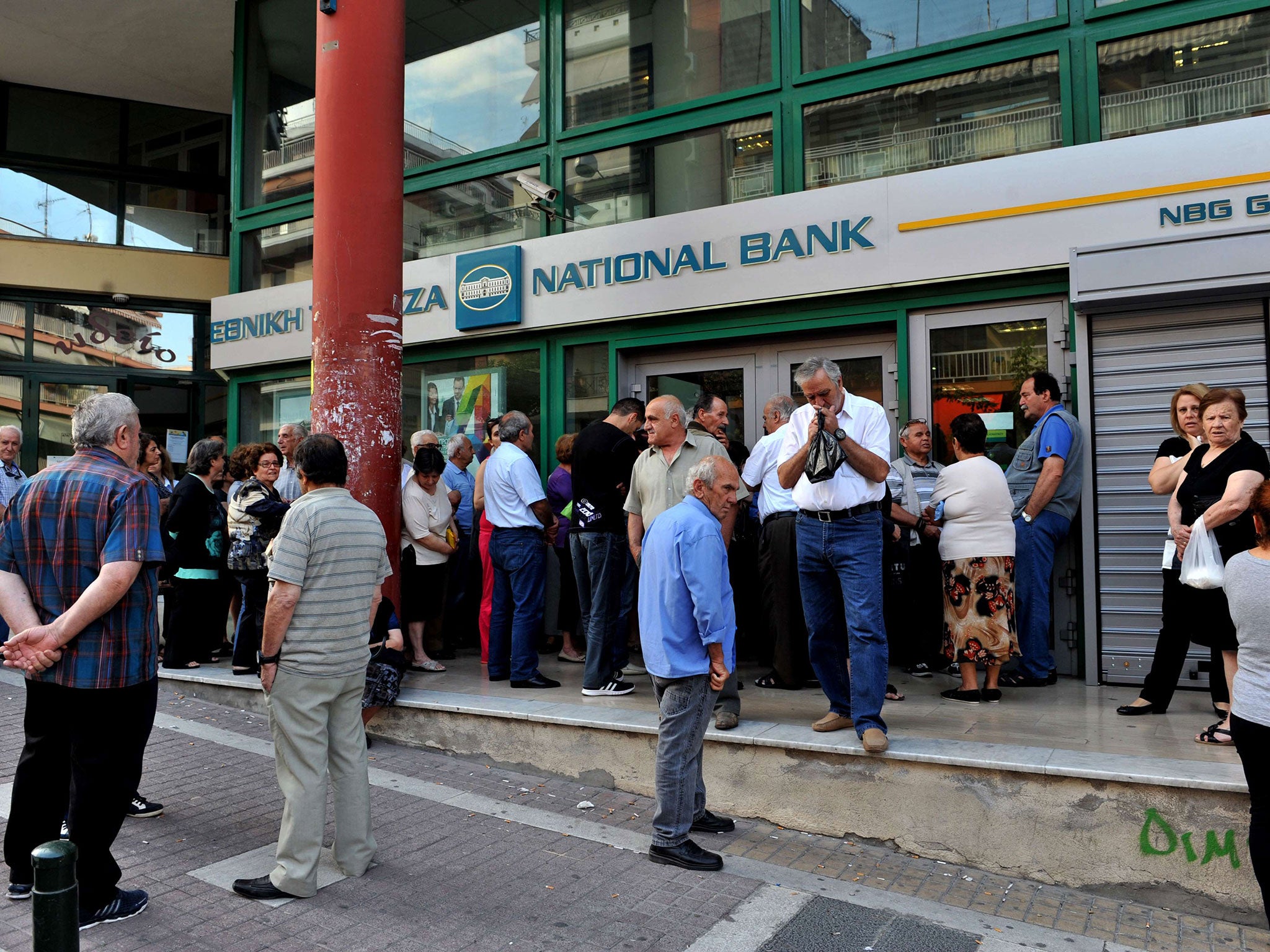Greek debt crisis: Senior Syriza figures refuse to back bailout plan amid growing anger
Party faces being torn apart as Tsipras is confronted by his broken promises

An astonishing U-turn by Greece’s far-left Prime Minister Alexis Tsipras, who has proposed more austerity, looks set to at least delay his country’s exit from the euro, but has exasperated left-wing supporters and threatens to tear his party apart.
Mr Tsipras’s decision to turn his back on voters who obeyed his call less than two weeks ago to vote No to more spending cuts or tax rises could bring an end to his government.
One Syriza MP, the party secretary Dimitris Vitsas, told Greek television that Mr Tsipras’s party would remain united, particularly if creditors sweetened the pill with a promise to discuss debt relief in the autumn. But as senior figures reacted angrily to the proposals, this sounded like wishful thinking.
Environment Minister Panagiotis Lafazanis has already indicated he will not back the deal; one report said he had even offered his resignation.

“You cannot go to sleep with the No in the referendum and wake up with the Yes a week later,” founding Syriza member, Vassilis Primikiris, said.
Mr Tspiras said: “We got a mandate to bring a better deal than the ultimatum that the Eurogroup gave us, but were certainly not given a mandate to take Greece out of the eurozone. We are all in this together.” For the collection of far-left theorists and neo-Marxists on the margins of his party, this is unthinkable.
The dream that Mr Tsipras would play Robin Hood to the Troika’s wicked King John is dead, killed off like so many far-left political programmes before it, by realpolitik and the fear – or realisation – that going it alone risked marginalising the country ever further.
Pundits and opposition figures in Greece say that Mr Tsipras was swayed by senior Greek and eurozone officials who warned of the civil disorder and a humanitarian crisis that might follow Greece’s exit from the single currency.

“Handling the change from an international currency back to the drachma would take a very, very skilled and competent team: that’s something Tsipras doesn’t have,” said Antigone Lyberaki, an economist and MP in the centrist To Potami party. “The Greek economy would go from chaotic to dead.”
Mr Tsipras’s Syriza, which promised so much, is now being asked by its supporters and the millions who voted No to more austerity how it was able to give in to creditors.
Staff at Syriza headquarters appeared divided on whether the Prime Minister had betrayed party ideals, and there was confusion about if or when a touted rally would take place. No one would comment.

Ordinary Greeks were more vocal. At a mobile phone shop nearby in the Psiri district of Athens, 28-year-old Aris Pardamanis, was one of many who had followed Mr Tsipras’s advice and voted No. He was now feeling confused and disappointed. He said: “There’s a joke on social media that says he told us to vote No, but now he’s done the opposite.”
From the moment Mr Tsipras launched his Thessaloniki Programme in September 2014, his party was burdened with a set of fanciful promises it couldn’t hope to keep. A rise in the minimum wage, the rehiring of public sector workers, the write-off of debt owed to private banks and free electricity for around a quarter of the population, were never do-able.
The talk was of sissacthathia, a Greek word meaning release from obligations or burdens. It sounded so inviting. And to the surprise of many – including party members – Syriza found itself in power four months later and having to implement those pledges.
Mr Tsipras even cosied up to Vladimir Putin. For some on the hard left of the party, ditching the euro, and Europe, for Russia appealed. ECB chief Mario Draghi derided the notion this week: “Russia hasn’t got any money either,” he said.
“Much or most of Syriza is not hard left. But they are guilty of cynicism. Appealing to the electorate with populist policies that had no sense,” said Ms Lyberaki. Mr Tsipras is not on the hard left, she said, but rather has been playing political games.

Syriza’s cynical predecessors in the mainstream parties are probably just as much to blame for the recent negative growth. Nonetheless, Mr Tsipras’s sabre rattling has just cost 40,000 more jobs in construction, thanks to the introduction of capital controls. And the recent double-talk, brinkmanship and broken promises are largely seen as having backfired, angering Northern and Eastern European hawks in the eurozone just when he needs them to give Greece a little breathing space.
“So maybe in the end the referendum vote was pointless,” said Mr Pardamanis in Psiri. “We were always going to have to accept a deal. But for so many Greek people, there will still be no jobs and no hope.”
Join our commenting forum
Join thought-provoking conversations, follow other Independent readers and see their replies
Comments
Bookmark popover
Removed from bookmarks